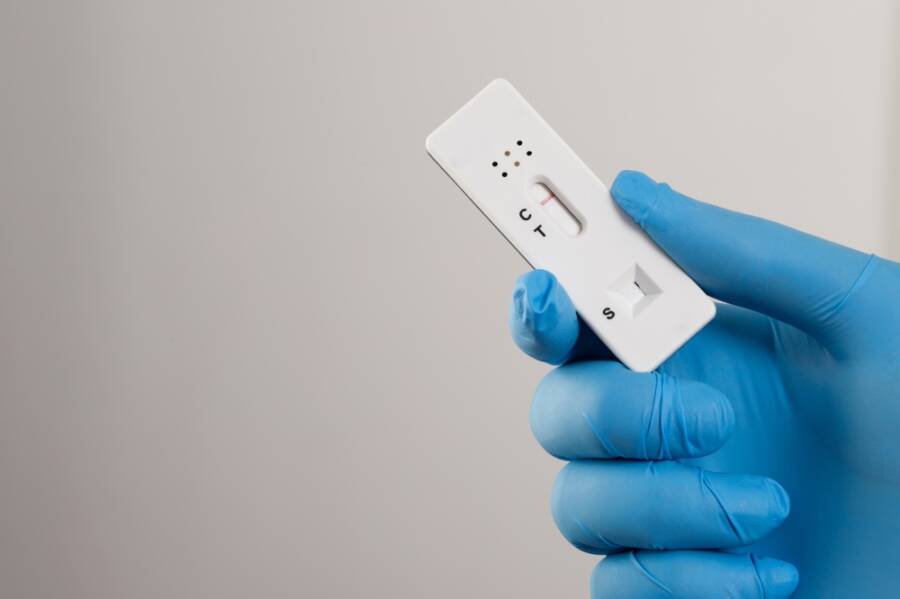These conditions might mimic dementia, so you don’t need to worry!
A recent AARP survey found that half of adults over 40 fear they might develop dementia. This percentage is huge compared to the actual prevalence of this condition.
Forgetfulness, confusion, and a lack of focus can be unsettling, but most of the time, they don’t indicate that you have dementia. These symptoms can often hide other treatable conditions.
During regular checkups, it is easy to get the wrong diagnosis, and these conditions end up being misdiagnosed as Alzheimer’s. Before assuming dementia, you need to rule out other possibilities.
These are some of the most common conditions that mimic dementia, and you can find out all you need to know about them right here.

1. Urinary tract infections
Surprisingly enough, urinary tract infections (UTIs) are known as one of the conditions that mimic dementia symptoms in some older adults. Most of us would not expect them to be on this list, but surveys show us that there are lots of women over 65 and even more over 85 who have experienced UTIs in the last year, and unlike in younger patients, these infections are much different in older adults.
In some cases, the classic symptoms of burning urination and fever are absent in seniors, says Dr. James Ellison, a geriatric psychiatrist. Many older adults present a change in their mental state as a first symptom, and this increases the incidence of misdiagnosis.
Hopefully, UTIs are incredibly easy to diagnose with a simple urine test and can be immediately treated with antibiotics. So even if this disease can mimic dementia in some older patients, these cognitive issues can be reversed with proper treatment, and those who suffer from it will have a speedy recovery.
2. Normal pressure hydrocephalus
Normal pressure hydrocephalus (NPH) might sound complicated and all, but this is another treatable condition that can mimic dementia and scare people.
In NPH, the fluid that is found around the brain, called cerebrospinal fluid, accumulates in large quantities, and over time, this can damage the brain tissues. When such disruptions take place, they will manifest as various cognitive problems similar to those found in dementia.
The reports from the Hydrocephalus Association tell us that over 700,000 Americans have NPH, and what is important is that the diagnosis rate is incredibly low, with a rate of less than 20%. Forgetfulness, difficulty walking, and various thinking deficiencies may all be present in the case of NPH, and they are shared with other conditions such as Alzheimer’s and Parkinson’s disease, leading to misdiagnosis.
The best part is that a neurologist can do a set of tests to identify NPH. Most of them consist of brain imaging and cerebrospinal fluid tests. This condition, even if it affects the brain, responds well to treatment, and the excess fluid can be drained.
3. Medication side effects
If you start having memory problems or you notice this in a loved one, the first thing that comes to mind might be that this is a sign of dementia.
But geriatricians want to present you with another perspective. Besides all of the conditions that can mimic dementia, your medication might be a surprising culprit that can cause a lot of trouble.
In the case of older people, the studies suggest that up to 12% of the suspected cases of dementia are caused by drug toxicity that mimics dementia. The main medications that affect cognition are sleep, anxiety, pain, and allergy medications. If you take more pills at the same time, the risk of polypharmacy is present, and this can make the effects worse.
A 2023 National Poll on Healthy Aging revealed that over 80% of adults aged 50–80 take at least one prescription medication, with nearly 30% taking five or more. It is important to mention that long-term medication can damage the kidneys and liver, and this can lead to medication buildup. For older adults, this can translate into various cognitive issues that mimic dementia.
4. Dehydration
It might sound unusual at first, but yes, dehydration can mimic dementia. As we age, our bodies are not as good at retaining water in the bloodstream, and because of this, we might not feel thirst in the same way. What we want to say is that you might not realize how thirsty you really are, and it is incredibly easy to become dehydrated.
Many seniors need to take various medications, such as laxatives or diuretics, and these also accelerate fluid loss. If you experience confusion and fogginess, this is a clear sign of dehydration. Be on guard, and if you notice dark yellow or brown urine, this is a red fever, and your body might be leaking fluids.
The good news is that the symptoms that mimic dementia and are caused by dehydration are also easily reversible. IV fluids are the best way to reverse these issues, and keep in mind that preventing dehydration is key. Older adults should drink around six 8-ounce glasses of caffeine-free fluids daily.
5. Sleep difficulties
A good night’s sleep is one of the main factors that affect your brain health, and when you don’t sleep well, the effects will affect your cognitive functions. Sleep allows your brain to rest and helps with memory consolidation, learning, and waste removal.
When your sleep is disturbed, some symptoms that mimic dementia can emerge, most of which are linked to mental fatigue, trouble focusing, and confusion. Statistics show that 30% to 48% of older adults suffer from insomnia.
If you struggle with sleep problems, try to avoid caffeine and alcohol in the evening and also limit your daytime naps. Be careful with sleep medications, and only use them when your doctor has prescribed them and only short-term.
Sleep apnea is another reason for poor sleep. This breathing disorder interrupts your sleep because it deprives your brain of oxygen. Many people with sleep apnea remain undiagnosed, and this can mean you will always have sleep problems that can cause cognitive symptoms that mimic dementia.

6. COVID-19 and other respiratory issues
If you suffer from an infection, let’s say COVID-19, and you leave it untreated, in severe cases, this leads to something called delirium. This disorder will change how your memory works and will also mess with your attention span and orientation skills.
While the white blood cells are trying hard to fight off the infection, chemical reactions happen in the brain. All of these may affect older adults and cause some cognitive changes that mimic dementia. For example, confusion, drowsiness, and difficulty focusing can all be present, and this is especially true for individuals aged 65 or older.
A 2020 study in JAMA Network Open found that 37% of senior COVID-19 patients who presented with delirium in the emergency room didn’t show typical COVID symptoms like fever or shortness of breath.
Delirium has a sudden onset, while dementia progresses gradually over the years. Also, dementia will never occur suddenly. The only instance in which this might happen is when a stroke causes it, but this is very rare.
So, even if dementia is a serious concern, we can clearly see that there are many other conditions that mimic dementia. We believe that this is good news, and before a proper diagnostic, you don’t need to worry. If you deal with any issues and you think that something is wrong, never hesitate to call your doctor.
If you want to know more about dementia and how to take care of someone who suffers from it, this book is an amazing read: The Complete Family Guide to Dementia: Everything You Need to Know to Help Your Parent and Yourself
You should also read: These 8 Things Will Reduce Your Biological Age by 6 YEARS!






